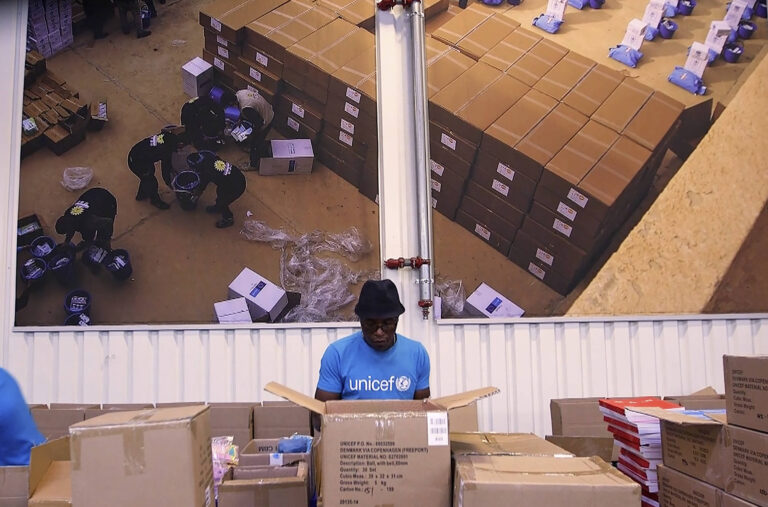
This originally appeared on TheAfricaReport.com
Covid-19 is the introduction and closing to many personal and business conversations these days. It is also the starting point for most economic discussions across the globe.
Discussions on the African continent are no different. But, in the context of sub-Saharan Africa (SSA), the Covid-19 pandemic may be a distraction from the realities of deeper economic problems.
SSA leaders have rallied the support of private markets and governments during the pandemic. They raised about $50bn in funding, which included a vast amount of private credit, and will initially access the Covid-19 vaccines via the COVAX program led by the public-private global health partnership Global Alliance for Vaccines and Immunization (GAVI Alliance). The COVAX program aims to vaccinate roughly 20% of the population in the 92 Advance Market Commitment (AMC) countries, which include the middle and lower-income countries that cannot afford to pay for the Covid-19 vaccine.
These positive takeaways for SSA during the pandemic are sadly overshadowed by the economic struggles on the continent, particularly in SSA’s three biggest economies. The big three – Angola, Nigeria, and South Africa – which account for about two-thirds of the region’s GDP, continue to labour through a slow recovery. It is clear Covid-19 is a contributing factor. Yet, it is also increasingly obvious that Covid-19 exposed challenges in these economies more than it caused them.
Angola
Before Covid-19 hit the country, Angola was making progress under President João Lourenço. The UN was prepared this past month to elevate Angola from the group of least developed countries (LDCs) before the Angolan government surprisingly requested a deferral of such economic graduation, which was accepted by the UN.
LDC countries benefit from capacity building and technical support among other things from the UN and quota-free and tariff-free market access to 22 countries. Although Angola has failed to capitalise on this market access, it is likely the ongoing access it seeks to utilize as oil revenues dry up and the country ideally diversifies its economy.
The country has been buried in a series of economic recessions during the last five years as oil prices remained in the $40-$60 range. In 2019, oil exports (in dollar terms) were less than half of their peak, and early 2020 numbers suggest a similar result. Covid-19 hurt oil demand and slowed the local economy that is largely centered around a booming oil industry.
That said, when the country had sustained high national income levels (a condition of exiting the LDC category), most social indicators in Angola trailed below its peers. A post-Covid world will not exactly change that reality.
Nigeria
The economic recovery is expected to be weak in 2021. The IMF estimates a growth of 1.5% in 2021 with the country expected to reach pre-pandemic levels only in 2022. These projections face significant downside risks, including the second wave of Covid-19 in the country, which has put pressure on the Nigerian healthcare system, and the uncertainty of the oil prices and oil demand.
Like Angola, the reality of Nigeria’s economy is its dependence on oil and its economic weakness in the new oil price environment. The country has substantial gas reserves but those remain severely unexploited. The country has also traditionally lagged in tax revenue collection, particularly when compared to other oil-exporting nations including Angola.
The Nigerian naira is also losing value relative to the dollar with capital inflows under pressure. At the request of the Central Bank of Nigeria, banks are assisting with reduced interest and principal payments for their corporate clients. Covid-19 obviously exacerbates the situation but surely is not the source of the problem.
South Africa
South Africa is not oil-rich like Angola and Nigeria. But it is commodity rich in gold, platinum, and coal among other resources. Thus, contrary to Angola and Nigeria, South Africa could be on the beneficiary end of higher commodity prices.
Still, rising commodity prices cannot fix what has been a fragile situation for a few years. Covid-19 can partially be blamed for an 8% economic contraction in 2021 but the economic numbers were sluggish before 2020 and “economic recession” was a common vernacular in discussions on the economy.
State-run entities, such as South African Airways and Eskom, have long faced issues for which Covid-19 cannot be blamed. Travel shutdowns in 2020 were only facilitating the inevitable restructuring process for the national airline while load shedding and power shortages have been a way of South African life for years.
Let us not forget that the rating agencies have been writing a South African obituary for some time. The country has avoided the worst economic outcomes, though all the news coverage on the current budget being the most important one yet suggests that politicians and economists alike are both worrying about the next 12 months. Again, that is not Covid-19, that is a history of economic trouble
